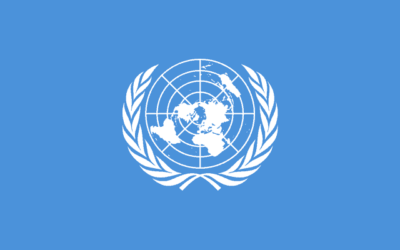“Biznes i prawa człowieka” to idea, w myśl której wszystkie przedsiębiorstwa, niezależnie od skali i miejsca prowadzenia działalności, powinny respektować prawa człowieka, w tym prawo do wolności stowarzyszania się, czystego i zdrowego środowiska czy zakaz pracy przymusowej. Koncepcja biznesu i praw człowieka (skrót ang. BHR od Business and Human Rights) zakłada, że choć przedsiębiorstwa mogą być potężnym motorem rozwoju i realizacji praw ekonomicznych, to jednocześnie mogą także wywierać negatywny wpływ na życie pracowników, lokalnych społeczności i innych podmiotów praw człowieka.
Ramy praw człowieka w kontekście biznesu są częścią Wytycznych ONZ dot. biznesu i praw człowieka (ang. UN Guiding Principles on Business and Human Rights, UNGPs). Więcej informacji o Wytycznych ONZ znajdziesz tutaj. Rządy państw, społeczeństwo obywatelskie, organizacje międzynarodowe i działające w wielu krajach korporacje w ostatnich latach coraz wyraźniej dostrzegają ogromne znaczenie praw człowieka w kontekście biznesu, co przekłada się na ustawodawstwa krajowe, międzynarodowe ramy prawne, standardy w biznesie i dobrowolne inicjatywy podejmowane przez korporacje. Klienci i konsumenci także coraz głośniej domagają się, by firmy, których produkty i usługi kupują, szanowały prawa człowieka.
Biznes i prawa człowieka mają wiele wspólnego z innymi celami i dążeniami, w tym z ochroną środowiska, zrównoważonym rozwojem, odpowiedzialnością społeczną biznesu oraz zwalczeniem korupcji. Więcej na ten temat znajdziesz tutaj.
Wytyczne ONZ dot. biznesu i praw człowieka opierają się na trzech filarach:
- Obowiązku państw zapewnienia ochrony praw człowieka,
- Odpowiedzialności przedsiębiorstw za przestrzeganie praw człowieka,
- Zapewnieniu dostępu ofiarom nadużyć ze strony korporacji do odpowiednich, skutecznych środków zaradczych i mechanizmów naprawczych (sądowych i pozasądowych).
Dowiedz się więcej o obowiązku państw w zakresie zapewnienia ochrony praw człowieka tutaj, o odpowiedzialności przedsiębiorstw za przestrzeganie praw człowieka tutaj. Więcej na temat dostępu ofiar nadużyć do odpowiednich mechanizmów naprawczych, zapewnianych zarówno przez państwo, jak i przez inne instytucje, przeczytasz tutaj.










